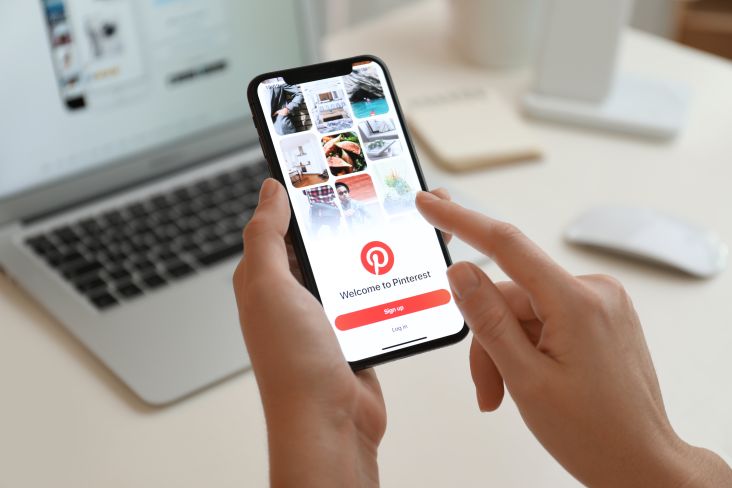When and how to say 'no' when freelancing
When you run a business, time is money. Every hour of every working day should be an opportunity to make a profit. But often, our time is abused by people, clients, family or friends who want our help for free.

Image licensed via Adobe Stock
They approach us and expect us to do them a favour when this is never the case. People don't seem to understand that we still have to work – that we're not messing.
The next time someone wants your advice or help without paying for it, consider the following common scenarios and solutions on how you can learn to say no when freelancing.
Scenario 1. Friends assume you've got the spare time to help
You know the feeling: you've been working like a dog for over a month because the previous quarter was a bit slow. You're trying desperately to make as much money as possible to build up a substantial cash reserve to ensure you can pay the monthly bills. And after a 15 hour day of stress, dealing with clients and meeting tight deadlines – you go to the pub to try and relax until a friend asks for your help.
The Solution
People don't see freelancing as you do. They assume that being a business owner means you're a success and are somehow different from people with full-time jobs. They don't realise that you probably work harder and longer hours than anyone else. And that you'd instead relax and do nothing during your spare time.
But how do you say no to a friend? How do you ensure your friendship isn't ruined by turning them down? You say that you'd love to help out, but you're busy with work. You don't apologise. You keep it short and sweet, and you say no. Or say something like: "No because I value our friendship and don't want to mix business with pleasure".
It isn't easy if you're a nice person and hate to let others down. But remember, you're not wrong for saying 'no'. Your friends also mean well – you need to think more about yourself and your happiness. And remember, you might think that small favour won't do any harm, but those small favours always turn into more significant jobs. Plus they set unhealthy terms within your friendship, and you can bet they'll come back for more 'free' help in future.
Scenario 2: People see your success and suggest their business ideas
When running your own business, friends and family will see your success and want to enjoy some of their own. They can sometimes come up with ideas that they think will make them wealthy and successful. But guess who they need to get those ideas off the ground? Yes, that's right - you! They say that if you help out, you can have a cut of the business.
The problem with other people's business ideas is that they often rely on your skills, time and hard work to make it happen. It means you'll put in all the effort while your friend or family member goes to work as usual. It ends up damaging your relationship because you're adding more stress to your workload.
The Solution
Listen carefully to the other person's business idea and enjoy talking about it. Throw in a few friendly suggestions here and there. When they inevitably ask if you can help, you say: "Absolutely! If you put a brief together and an idea of budget, I'll take a look and see if I can help. But I must warn you, I'm swamped at the moment and can't start any new projects until next year". Or something along those lines.
If the other person suggests you should do it for free and take a healthy cut of the profits, you say: "It's tempting, but I'm not prepared to take that risk with my business right now. I've got bills to pay, unfortunately. Sounds great though! And I'm sure you'll make it a success!".
By saying something like that, you're educating the other person and establishing boundaries. You are subtly pointing out that your time is valuable and you don't do things for free. And that actually, they're pretty rude for even asking.
Whatever you do, don't be defensive or feel guilty for saying no. Don't get angry with the other person. Just be calm, friendly and sympathetic. If they're a good friend or family member, they'll understand and change the subject. And if not? You'll have seen their true colours, and maybe it's time to keep them at arm's length.
Scenario 3. A potential client asks you to work below your standard day rate
You'll be pitching for a project or discussing a proposal with a prospective client, and they'll start to try and cut your costs. They've discovered your day rate and begin to assume they can get the same outcome for less time. It, of course, belittles your skills and means quality is compromised. Which is a shame because clients don't realise that proper investment is required to ensure a thorough job and positive result.
The Solution
If you want to avoid clients pinning you down on price, ask what they need you to do and give them a fixed price. Don't reveal your day rate – say that to complete the project, it will cost £X amount. Because the minute they know your day rate, they'll want to cut down your time.
If you really must reveal your day rate, pitch it a little higher than you usually would. They can always negotiate you down on price. But remember, once you've quoted – you can't charge any higher, so always start with a higher rate.
Scenario 4. A client asks for extra work that you didn't agree to
One of the most challenging problems for any freelancer is when a client asks for additional work that you didn't agree to. Sometimes, clients can become stressful and expect you to throw in extra support for free. It becomes especially tough if you have nothing in writing to say otherwise, and you can only rely on past conversations.
The Solution
On every project, put together a thorough written quote/proposal, detailing every single aspect of the work you're going to do. By all means, add in as many disclaimers as you see fit – for example, "Please note, this price only includes X, X and X" and "Please note, this quote does not include additional costs such as stock photography, design work or copywriting. If the client would like any of these extras, they will be charged separately". You get the picture.
Don't be afraid to put everything in writing and make sure you keep a copy of the email you send to the client with a PDF attachment of said quote. Also, ask the client to email you back and give the go-ahead on the quote. It means you'll have written evidence of them agreeing to that document.
Finally, when a client does ask for extra work, say something like "Yes we can do that, no problem at all. It wasn't something we included in our original quote, so it will take extra time to achieve – which will cost £X. Please let me know if you're like to proceed". Be friendly, be professional and give the client options. Most of all, educate them to understand that you never work for free. Unless of course, those extras will take two minutes of your time and you're happy to throw in the odd favour.
Scenario 5. Someone approaches you and is 'desperate' for your help
Whether it's a charity, a 'friend in need' or a family member begging for your support, you are guilted into doing work for free. You feel as though there is no alternative because the person in question is desperate for help. However, once work begins – it ends up creeping into your working day, and other paid-for projects are compromised.
The Solution
If you want to help someone out and you can afford to do so, do it! It's often great to support good causes and the people we love. But if that support is going to impact on your own life and cause issues for yourself, then it's probably something you should avoid. To turn someone down say that you can't afford to do any charity work right now.
If you're feeling guilty for saying no, a great top tip is to recommend online learning resources, e-books or websites that you think they'd find helpful. Don't – whatever you do – recommend another freelancer. It won't be something they'll appreciate. Instead, ask your freelance contact if they're looking to expand their portfolio, and allow them to decide whether they'd like to help.
Scenario 6. A potential client is trying to steal your ideas for free
It's always great getting phone calls from prospective clients who seem keen to hire you. But sometimes these people are only ringing to get some free advice so they can do everything themselves. You can often spend an hour on the phone with these people. Or worse, you end up having a lengthy meeting, only to find that they never intended to hire you and implement all of your ideas without you.
The Solution
You'd be surprised how many times this happens when running your own business, but it happens a lot. I like to call them the 'DIY kids' as they'll only be interested in picking your brains but will then use all of your ideas without your input. So how do you tackle these time-wasters who don't seem to respect you?
It's where 'vague' becomes your favourite word. Become vague so that you don't reveal too much and you'll protect yourself. Because if someone thinks they can get away with speaking to you on the phone to gain your free advice, they will. Don't let them! And don't arrange any meeting unless you think they're serious. Remember, being vague doesn't mean you can't demonstrate your expertise. It's just finding a balance to show the client that you know what you're doing, without revealing exactly how you do it.
Another top tip is to learn to recognise these unsavoury types. Ask specific questions, and you'll become savvy at knowing who is and isn't wasting your time. An excellent way to dig them out is to ask for a detailed brief and budget. It means if they're serious about hiring you, they'll go away and think about what they need. When you feel the prospect is serious – that's when you can drop the 'vague' act and arrange a meeting.
Scenario 7. The client doesn't know what they want
You know the story. A prospect client calls up and has no idea what their business needs to become a success. They'll expect you to have all the answers, something that can be difficult if your creative field is purely graphic design or illustration. When faced with a client that doesn't know what they want, you risk wasting a lot of time dealing with them.
The Solution
If a client is entirely clueless about what their business needs, make a friendly suggestion that they should either go away and put together a detailed proposal or perhaps approach a marketing consultancy for advice. Don't be self-deprecating by saying "I'm only a graphic designer – what do I know!", because you will have a lot of experience and skills to offer.
Just try everything you can to point the client in the right direction. Don't worry about them going elsewhere – your honest advice won't be forgotten, and it's pretty darn likely they'll come back to you, once they know what they want and where they're going.




 by Tüpokompanii](https://www.creativeboom.com/upload/articles/58/58684538770fb5b428dc1882f7a732f153500153_732.jpg)


 using <a href="https://www.ohnotype.co/fonts/obviously" target="_blank">Obviously</a> by Oh No Type Co., Art Director, Brand & Creative—Spotify](https://www.creativeboom.com/upload/articles/6e/6ed31eddc26fa563f213fc76d6993dab9231ffe4_732.jpg)
















